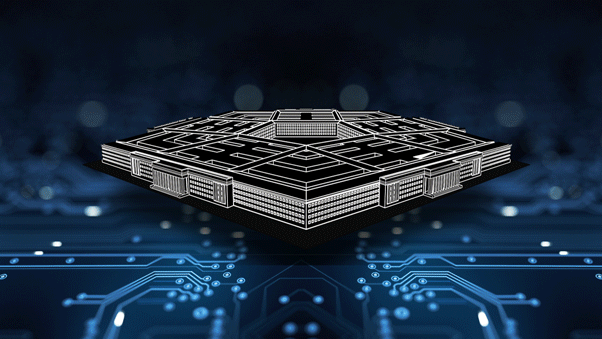A new study has found that artificial intelligence (AI) is more accurate than doctors in detecting prostate cancer, a common cancer in men. The study found that AI identified prostate cancer with 84% accuracy, compared to 67% accuracy for cases detected by physicians.
Artificial intelligence (AI) is emerging as a powerful tool in the healthcare industry, and its potential for improving cancer detection and treatment is particularly promising. A recent study conducted by the University of California, Los Angeles (UCLA) has demonstrated the superiority of AI in detecting prostate cancer compared to human physicians.
According to the study, AI identified prostate cancer with an accuracy rate of 84%, significantly higher than the 67% accuracy rate achieved by physicians. The study involved a team of seven urologists and three radiologists who analyzed 50 cases of prostate cancer where tumors had been removed. They searched for signs of residual cancer, followed by AI software performing the same analysis a few months later.

AI Outperforms Doctors in Detecting Prostate Cancer, Study Finds
The results revealed that the "negative margin rate" — a medical term indicating the absence of cancer cells surrounding the removed tissue — was 45 times greater in AI-detected cases. This finding suggests that AI has a greater ability to detect and identify cancerous tissue, minimizing the chances of cancer cells being left behind.
Dr. Ali Kasraeian, a urologist at Kasraeian Urology in Jacksonville, Florida, incorporates the Unfold AI technology into his consultations with prostate cancer patients to manage their treatment plans effectively. "The AI analyzes the patient's prostate cancer data, including pathology, imaging, and biopsy results, to create a 3D cancer estimation map," he explains.

AI Outperforms Doctors in Detecting Prostate Cancer, Study Finds
The 3D map generated by Unfold AI provides valuable insights into the extent and severity of the cancer, enabling physicians to tailor treatment strategies accordingly. "The results guide us in determining whether focal therapy or more invasive treatments like radical prostatectomy or radiation therapy are more suitable for the patient," Dr. Kasraeian adds.
The study's findings have significant implications for prostate cancer diagnosis and treatment. AI's enhanced detection accuracy could lead to more precise diagnoses, reducing the need for full-gland removal surgeries and the associated side effects, such as incontinence and impotence.

AI Outperforms Doctors in Detecting Prostate Cancer, Study Finds
Dr. Joshua Trachenberg, a professor of neurobiology at UCLA and a prostate cancer patient himself, shares his experience with AI technology. After being diagnosed with a slow-growing prostate tumor, he explored alternative treatment options rather than surgical gland removal.
Collaborating with a UCLA team, Dr. Trachenberg underwent an experimental therapy that used ultrasound guided by MRI to destroy the cancerous tissue without affecting the rest of the gland. "The 3D map created by Unfold AI enabled the team to identify precise margins and target the cancerous area effectively," he explains.

AI Outperforms Doctors in Detecting Prostate Cancer, Study Finds
Dr. Trachenberg's successful treatment highlights the potential of AI to enhance prostate cancer care. It provides patients with more options and reduces the physical and emotional toll associated with radical surgeries.
While AI has proven to be a valuable tool in cancer detection, it is important to consider its limitations. Dr. Harvey Castro, a board-certified emergency medicine physician and national speaker on AI, emphasizes the reliance of AI on data quality. "The accuracy of AI depends heavily on the quality of data it is trained on. Poor data can lead to inaccurate diagnoses."

AI Outperforms Doctors in Detecting Prostate Cancer, Study Finds
Dr. Castro also stresses the importance of balancing AI with human expertise. "While AI is a powerful tool, it should complement, not replace, the clinical judgment of health care professionals. AI should be seen as a diagnostic ally that can assist physicians in making informed decisions."
Additionally, data privacy and the cost of AI technologies are factors that need to be addressed as AI becomes more prevalent in healthcare. Dr. Kasraeian expresses his hope that "this study encourages us and future payers to make these innovations more accessible to urologists and, most importantly, to our patients."

AI Outperforms Doctors in Detecting Prostate Cancer, Study Finds
The UCLA study's findings provide promising evidence of the potential of AI to revolutionize prostate cancer detection and treatment. By embracing AI technology while maintaining appropriate oversight and addressing limitations, we can harness its capabilities to improve patient outcomes and enhance the overall quality of healthcare.










